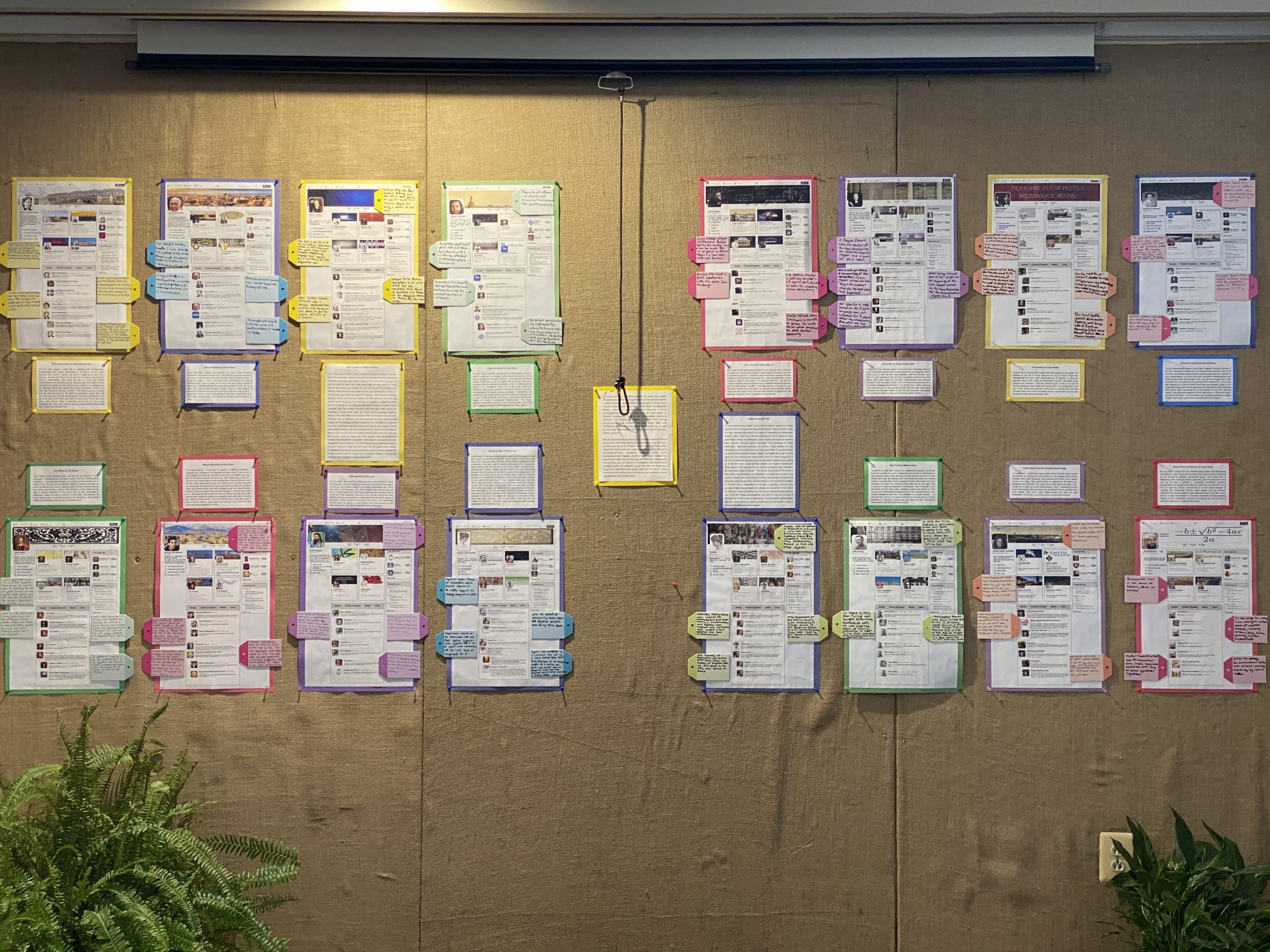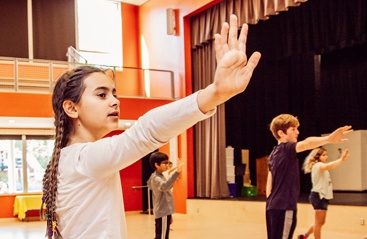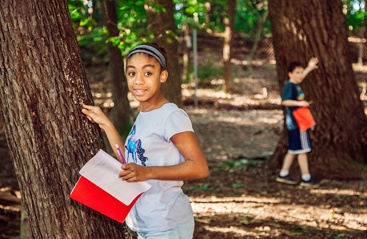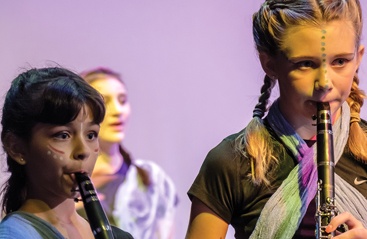If Mathematicians Tweeted: An Interview with Middle School Math Teacher Lee Bissett

Why was this project important to you? Why did you make it part of the curriculum this year?
Math is usually taught as a series of skills and techniques to be learned and performed in rote without any context or appreciation for where said techniques come from. In every other discipline, we celebrate individual accomplishments and personalities, yet for some reason exclude mathematics as if mathematicians weren’t people with their own stories to tell. I’ve always hoped students walk away from my class with an appreciation of where mathematics as we now know it came from and the various individuals who contributed along the way.
Could the students pick any mathematician or were they asked to choose from a list?
I gave students a list of mathematicians who had interesting stories along with various identifiers of those individuals (nationality, gender, race if applicable, and so on) to help them winnow the list if they wanted to select someone with a particular identifier.
Why ask the kids to report on the mathematicians in the form of a Twitter profile?
Why not? I mean, they certainly could have written a paper or made a slideshow, but if you think about the knowledge required to make someone’s Twitter profile, you’ll see that it’s the modern version of personification. What would the person’s username have been? What would they have tweeted? Would they have been serious or snarky? Who would they have followed? What would they have searched for that Twitter would have turned into the “Trends for you” section? Answering those questions requires creativity and a very deep understanding of the person’s life and personality.
What were the students’ reactions to the projects? Any funny/special anecdotes?
Most students enjoyed the project, almost certainly more than they would have enjoyed writing a paper. My personal favorite is that I’m a follower on Oliver’s project on Grigori Perelman. I gave Oliver a book about the particular math problem Perelman solved so that he could read a bit more about Perelman’s life and Oliver (correctly) intuited that since I had read a book on Perelman, I must also have been interested in his life, and thus would have been one of his Twitter followers. Very, very clever.
I noticed you did your own report as well. Why did you pick the mathematician you chose?
I guess it’s largely spelled out in my explanation, but Wallis is my intellectual hero and someone who doesn’t quite get enough credit in the world beyond mathematics. Everyone knows who Isaac Newton is, but Newton probably would not have been able to complete his landmark intellectual breakthrough – Principia Mathematica – without the foundations laid by Wallis a few decades earlier. Wallis was also able to keep his head (literally) during the English Civil War, Interregnum, Restoration, and Glorious Revolution of the mid- to late 17th century by relying on his intellect and wisdom, something many other academics and intellectuals were unable to do during a time of great mistrust of elites.
Inquire Now
Burgundy is a one-of-a-kind independent school for Junior Kindergarten through 8th Grade. We believe children learn best in an inclusive, creative, and nurturing environment that engages the whole child.
3700 Burgundy Road
Alexandria, VA 22303
703.960.3431
Accredited by:
Affiliated with:
Partners with:
©2024 Burgundy Farm Country Day School
Designed and developed by The Design Channel![]()







